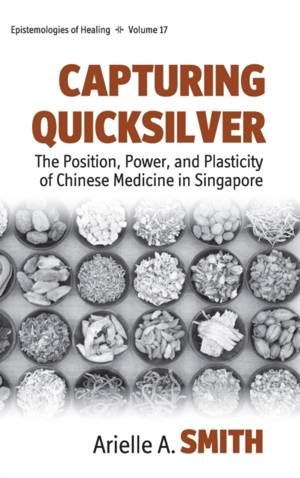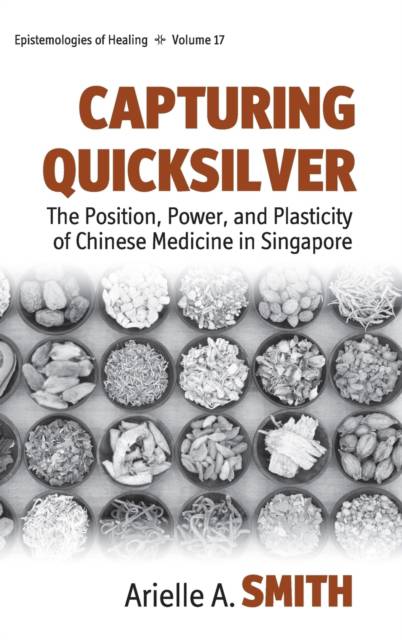
- Retrait gratuit dans votre magasin Club
- 7.000.000 titres dans notre catalogue
- Payer en toute sécurité
- Toujours un magasin près de chez vous
- Retrait gratuit dans votre magasin Club
- 7.000.0000 titres dans notre catalogue
- Payer en toute sécurité
- Toujours un magasin près de chez vous
Capturing Quicksilver
The Position, Power, and Plasticity of Chinese Medicine in Singapore
Arielle A SmithDescription
Since the turn of the century Singapore has sustained a reputation for both austere governance and cutting-edge biomedical facilities and research. Seeking to emphasize Singapore's capacity for "modern medicine" and strengthen their burgeoning biopharmaceutical industry, this image has explicitly excluded Chinese medicine - despite its tremendous popularity amongst Singaporeans from all walks of life, and particularly amongst Singapore's ethnic Chinese majority. This book examines the use and practice of Chinese medicine in Singapore, especially in everyday life, and contributes to anthropological debates regarding the post-colonial intersection of knowledge, identity, and governmentality, and to transnational studies of Chinese medicine as a permeable, plural, and fluid practice.
Spécifications
Parties prenantes
- Auteur(s) :
- Editeur:
Contenu
- Nombre de pages :
- 324
- Langue:
- Anglais
- Collection :
- Tome:
- n° 17
Caractéristiques
- EAN:
- 9781785337949
- Date de parution :
- 24-05-18
- Format:
- Livre relié
- Format numérique:
- Genaaid
- Dimensions :
- 155 mm x 231 mm
- Poids :
- 589 g

Les avis
Nous publions uniquement les avis qui respectent les conditions requises. Consultez nos conditions pour les avis.






